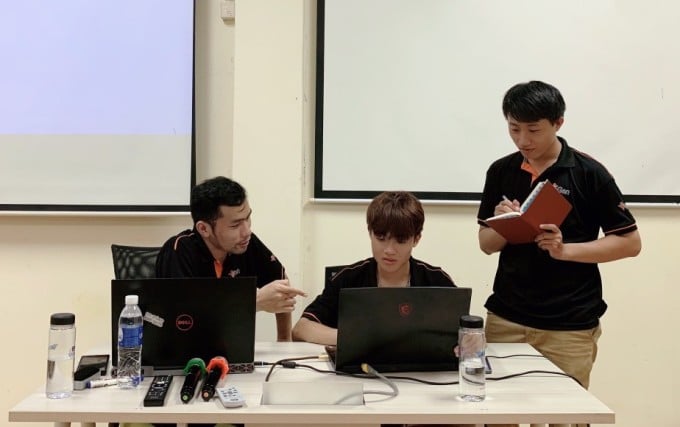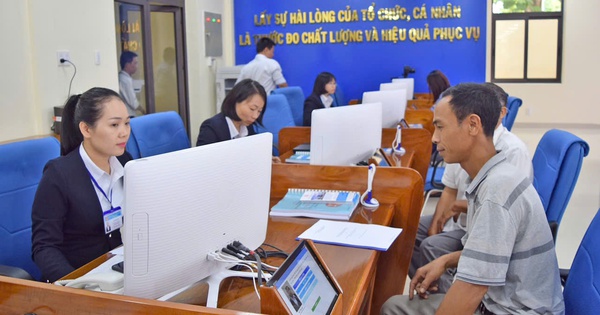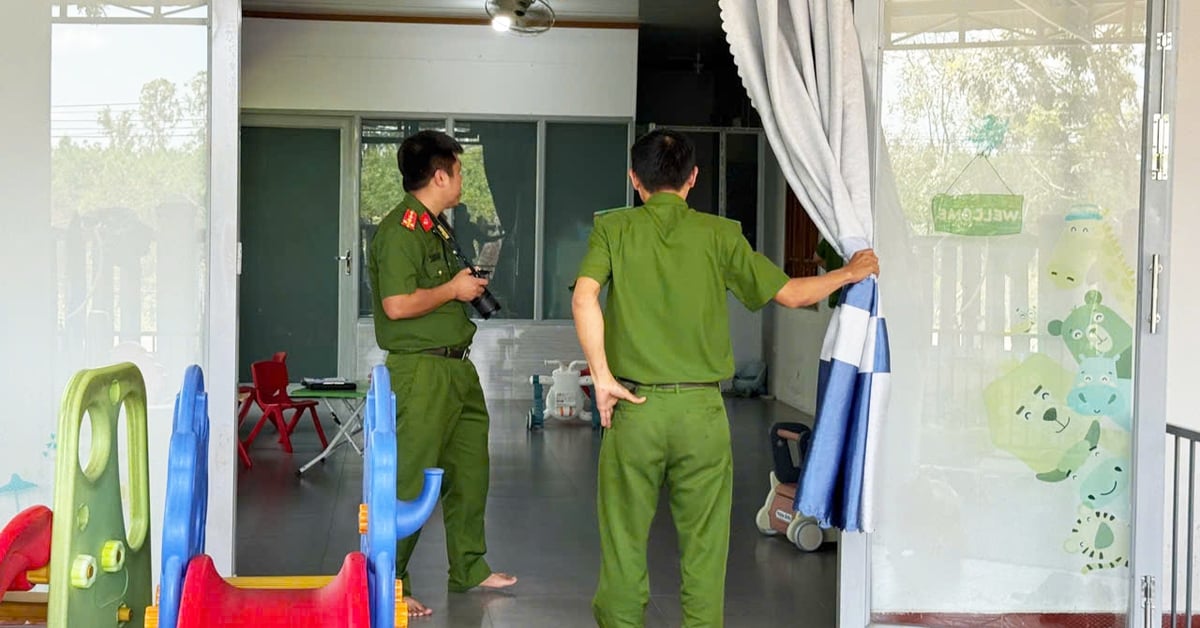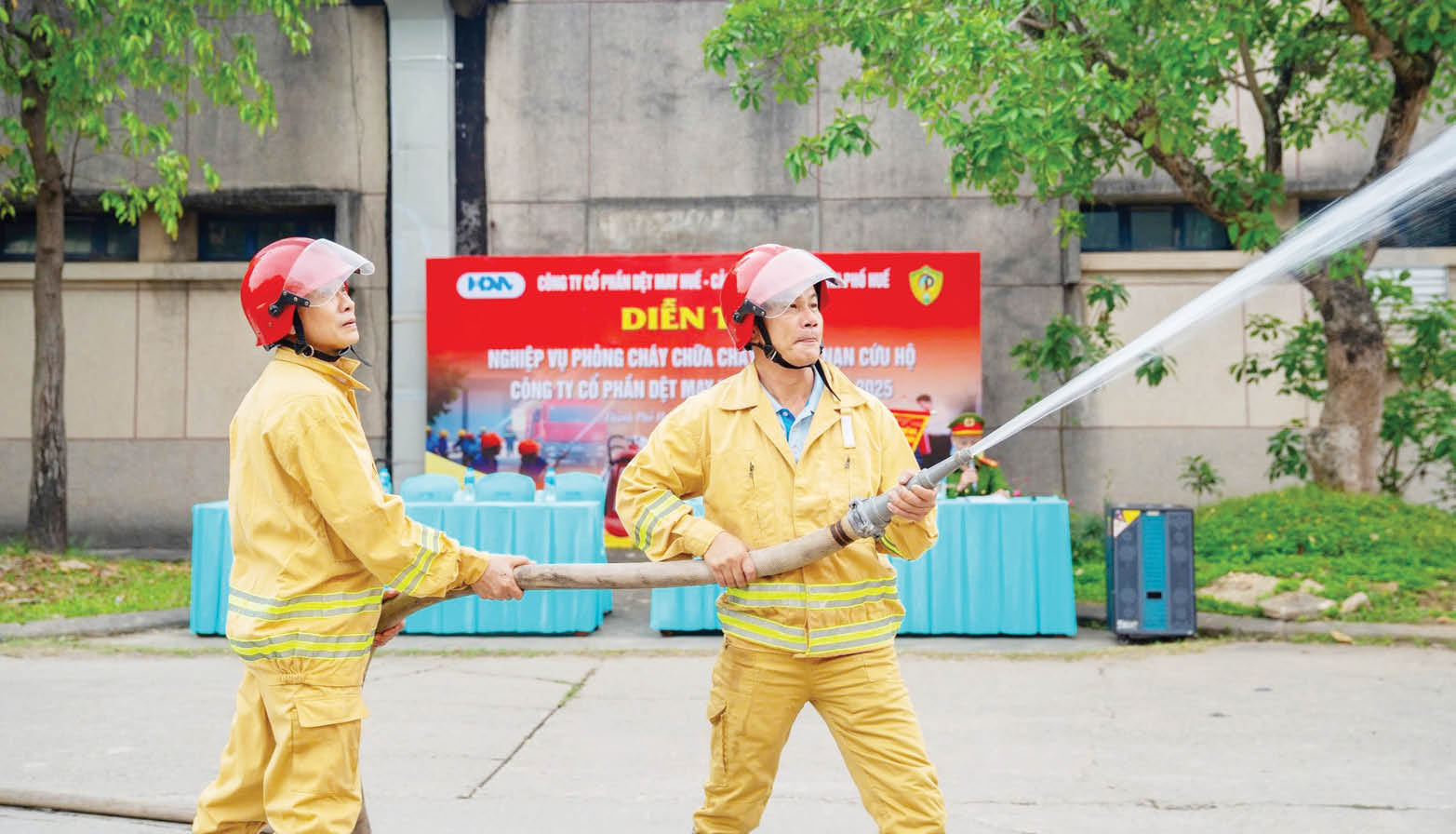Working 35 hours a week at a snack bar with an income of about 600,000 VND, Lan doesn't know where to get money to spend if she can only work 20 hours.
Nguyen Lan, from Hung Yen, a first-year student at a college in Hanoi, goes to Nghia Tan market, Cau Giay district, every day at noon.
Lan works from 1pm to 6pm, helping customers order, making some simple dishes like rice paper rolls, tofu pudding and cleaning. Lan is paid 85,000 VND per shift.
"The restaurant is small and only crowded at certain times, which is suitable for me," Lan said. "I get paid more than 2.5 million VND a month, plus my family's support, which is enough for me to live in Hanoi."
It is estimated that 70-80% of students work part-time during their studies, according to some university surveys. Vietnam has not yet conducted any national research on part-time work among students.
Young people often work as assistants at restaurants, cafes or packaging goods, working 4-5 hours a day, equivalent to 28-35 hours a week. The common salary is 17,000-20,000 VND per hour.
On March 15, the Ministry of Labor, War Invalids and Social Affairs sought opinions on the draft revised Law on Employment, which for the first time proposed that students aged 15 and over be allowed to work part-time but not more than 20 hours per week during the school term and not more than 48 hours per week during the holidays.
Lan and many other students were surprised to hear the news. They were worried that the restriction on overtime hours would mean a reduction in income, making it difficult to make ends meet. Some thought it would affect their career learning opportunities.

Employees work in a coffee shop in Ho Chi Minh City, October 2022. Photo: Hong Chau
Representatives of some schools in Hanoi and Ho Chi Minh City said that the current average spending level of students is about 4-5 million VND per month, not including tuition fees (1.2-6 million VND per month for the general program). Students living outside spend more money than those living in dormitories or with relatives.
Living with a friend, Lan's expenses are also around the same. "If I can only work 20 hours a week, my income will be cut in half, I probably won't have enough money to eat," Lan said.
Hong Quan, a first-year student at Ho Chi Minh City University of Technology, believes that tightening overtime hours will affect his life and his study opportunities. Quan currently works as a motorbike taxi driver for 4-5 hours a day, and 10-12 hours on weekends, earning more than VND2 million.
"My family gives me 2-3 million VND per month. Now if my income from part-time jobs decreases, the family's burden will increase because the cost of living in the city is very high," Quan worries. The male student thinks about trying to win a scholarship from the school, but it's not easy because he usually has to be in the top 10% in terms of academic scores.
"This proposal was passed, not only me but my whole family is worried," Quan said.
For Luong Huu Phuoc, a student at the University of Economics and Law, Ho Chi Minh City National University, being limited to part-time work can affect his learning, knowledge acquisition, and work experience.
Currently, Phuoc works about 16 hours a week at an education startup. When there is a lot of work, he has to work 20-22 hours a week.
"The rule of working no more than 20 hours per week is rigid," said Phuoc.
Lan also thinks this proposal is not suitable. The female student shared that most part-time jobs require working 4-5 hour shifts, equivalent to 28-35 hours per week. This is also suitable for students who only study in the morning or afternoon.

Huu Phuoc (standing) manages a class at a company, the evening of March 26. Photo: Character provided
On the contrary, representatives of many universities said that Managing students' extra hours is necessary, because in reality many students are so busy working that they neglect their studies.
"Students need to focus on their studies and graduate on time, so they have a good chance of getting a good job after graduation," said Master Tran Viet Toan, Head of the Department of Political and Student Affairs, University of Technology, Vietnam National University, Ho Chi Minh City. "Working 20 hours a week is reasonable."
Professor Chu Duc Trinh, Principal of the University of Technology, Vietnam National University, Hanoi, assessed that 20 hours per week is still too much. He is concerned that students who start working early will easily fall into the "middle-income trap", meaning that they are eager to earn 5-10 million VND per month and neglect their studies, and then fail to graduate, affecting their long-term future.
In addition, administrators wonder how the school can control this.
Master Tong Van Toan, Head of Student Affairs Department, Nha Trang University, said that students can be asked to commit to not exceeding the prescribed number of hours, but there is no authority to check, neither on the part of students nor employers.
Citing information that some countries only allow international students to work 20-24 hours per week, Master Tran Nam, Head of Student Affairs Department, University of Social Sciences and Humanities, Ho Chi Minh City National University, said that these are countries with a large number of international students. The regulation aims to ensure that students focus on their studies, and also creates a barrier so that international students do not take away too many jobs from domestic workers.
As for Vietnam, when schools do not have a unified management system or tools for verification, it can create resistance and reduce the effectiveness of policies in practice.
Master Do Ngoc Anh, Director of the Center for Communication and Admissions, Hanoi Open University, acknowledged that part-time work is a need of the majority of students. The purpose is to earn money to cover expenses due to difficult family circumstances or to improve expertise, expand relationships, and help them become more mature. However, he said that there should be specific regulations for each group, instead of lumping together students from 15 years old and up.
"Students mainly depend on their families, so their need for part-time work is different from that of university students," he said.
According to Professor Trinh and Master Ngoc Anh, schools need to do a good job of academic advising, have many support activities to help students balance between studying, research and developing soft skills, sports, arts... At the same time, universities need to diversify scholarships and support funds for disadvantaged students.
"Students need to share with the school and community to overcome, not take immediate difficulties to invest in getting a job. That is a short-term thing," said Mr. Trinh.
Lan and Quan still have not figured out how to handle it if the proposal is approved. "Maybe we'll just do it as it is, until we're not under control, we'll just do it like we are now," Lan said.
Quan still hopes that students are free to work part-time according to their abilities and time.
Duong Tam - Le Nguyen
Source link


































![[Photo] "Beauties" participate in the parade rehearsal at Bien Hoa airport](https://vstatic.vietnam.vn/vietnam/resource/IMAGE/2025/4/11/155502af3384431e918de0e2e585d13a)































































Comment (0)